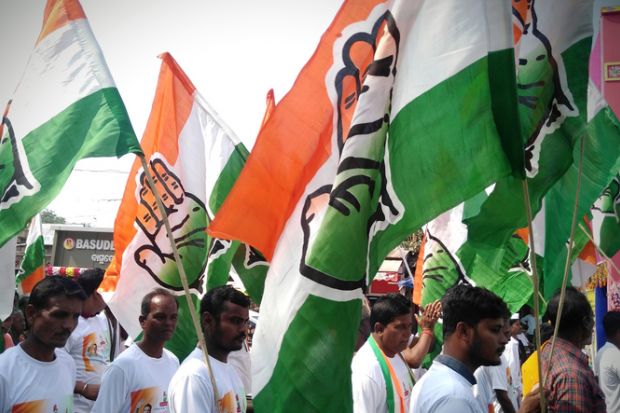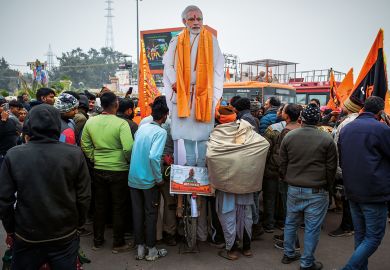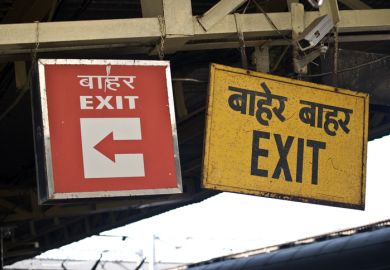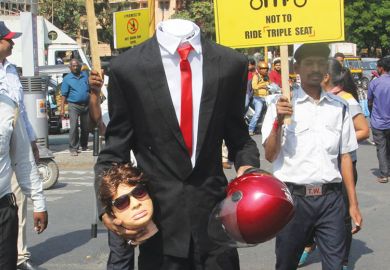Indian university leaders have defended themselves against “baseless allegations” after the leader of the country’s main opposition party accused them of securing their positions on the basis of political affiliation.
Vice-chancellors and other representatives of over 180 universities published an open letter in response to what they say were “unfounded rumours” voiced by Rahul Gandhi, a leading figure in the Indian National Congress opposition party.
According to The Times of India, in a video posted online in April by the Congress party, Mr Gandhi said in Hindi, “You take out the list of vice-chancellors in the education system of Hindustan, all of them are [Rashtriya Swayamsevak Sangh] people”, referring to the right-wing Indian paramilitary organisation that advocates for Hindu nationalism, closely linked to prime minister Narendra Modi.
“They have no idea about education,” he went on.
In the letter published on 5 May, university leaders refute the accusations. “The process by which vice-chancellors are selected is characterised by stringent, transparent rigorous procedure grounded on the values of meritocracy, scholarly distinction and integrity,” they write.
“We strongly urge all individuals involved to exercise discernment in distinguishing fact from fiction, to abstain from spreading unfounded rumours, and to participate in dialogue that is well-informed, constructive and supportive of our shared goal of creating a dynamic and inclusive educational environment,” they go on.
They say that Mr Gandhi had “defamed” vice-chancellors “at large with the intent to derive the political mileage out of it” and added that they hoped “appropriate” legal action would be taken against him.
The row follows a long-standing debate about the appointment of vice-chancellors in India, with non-Bharatiya Janata Party aligned state governments tussling with the central government for control. Recently the Kerala state government attempted to pass a bill that would replace the centrally appointed state governor as chancellor of the region’s universities, thus revoking his power to appoint vice-chancellors.
However, in their letter, the vice-chancellors assert that the “array of academic disciplines and professional experiences” represented among them “stands as evidence of the unbiased and inclusive nature of the selection process” in India.
Signatories include current and former vice-chancellors of leading institutions including Jawaharlal Nehru University, the University of Delhi and the Indian Institute of Technology Guwahati, as well as leaders of sector bodies including the Association of India Universities.
Register to continue
Why register?
- Registration is free and only takes a moment
- Once registered, you can read 3 articles a month
- Sign up for our newsletter
Subscribe
Or subscribe for unlimited access to:
- Unlimited access to news, views, insights & reviews
- Digital editions
- Digital access to THE’s university and college rankings analysis
Already registered or a current subscriber?








